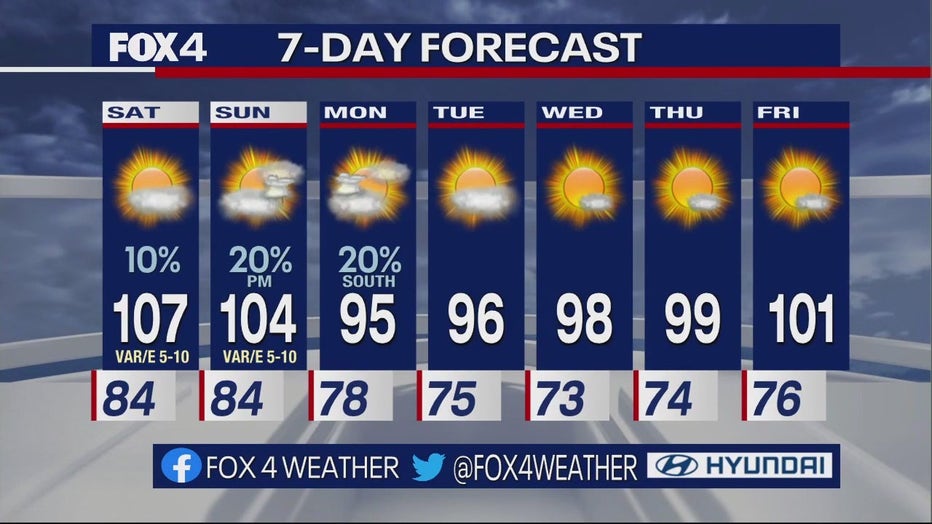Dallas, Texas, is known for its vibrant sports culture, hosting a variety of professional teams and countless amateur leagues. However, the role of weather in shaping the sports scene cannot be overlooked. From scorching summers to unpredictable thunderstorms, the climate in Dallas significantly influences how sports are played, scheduled, and enjoyed. This article explores the various aspects of Dallas weather and its implications for sports, providing insights backed by statistics and case studies.
Understanding Dallas Weather
Before diving into the influence of weather on sports, it’s essential to understand the typical climate characteristics of Dallas. The city experiences a humid subtropical climate, characterized by:
- Hot Summers: Average high temperatures often exceed 95°F (35°C) in July and August.
- Mild Winters: Winters are relatively mild, with average lows around 34°F (1°C) in January.
- Variable Precipitation: The city receives annual precipitation of about 38 inches, with spring and fall being the wettest seasons.
- Thunderstorms: Frequent thunderstorms can occur in spring and late summer, sometimes leading to extreme weather events.
These weather patterns not only affect daily life but also have profound implications for sporting events and seasons.
The Effect of Heat on Outdoor Sports
The high temperatures during the summer months pose significant challenges for outdoor sports, particularly those that require extended playtime, such as football, soccer, and baseball. Here are some ways heat impacts these sports:
- Scheduling Conflicts: Many teams adjust their practice and game schedules to avoid the hottest parts of the day. For instance, high school football practices often start in the early morning or late evening.
- Health Risks: Athletes are at risk for heat-related illnesses, which can lead to dehydration, heat exhaustion, or heatstroke. In 2019, several college football teams in Texas had to cancel practices due to extreme heat warnings.
- Equipment Limitations: The heat can damage sports equipment, especially for sports like football where players wear heavy protective gear.
Case Study: Dallas Cowboys

The Dallas Cowboys, one of the most recognizable NFL teams, have to adapt their training regimen to cope with the heat. The team’s training camp often takes place in Oxnard, California, to escape the Texas heat while preparing for the football season. They conduct practices in the morning and evening to mitigate the effects of the heat on players.
Rain and Thunderstorms: An Unpredictable Challenge

While the summer heat is a well-known factor, Dallas thunderstorms also create challenges for sports events. Rain can lead to cancellations, delays, and rescheduling of games. Here are some noteworthy points:
- Field Conditions: Rain can make fields unplayable, affecting sports like soccer and football. The NFL has specific guidelines for field conditions, and games can be postponed or moved indoors if necessary.
- Fan Attendance: Inclement weather can deter fans from attending games, impacting ticket sales and overall game atmosphere. For example, attendance at outdoor events often drops significantly during rainstorms.
- Rescheduling Events: In 2015, a thunderstorm forced the postponement of a Texas Rangers game, highlighting the impact of weather on scheduling.
Case Study: Texas Rangers

The Texas Rangers, Major League Baseball’s Dallas franchise, face unique challenges due to unpredictable weather. In 2016, a game was postponed due to heavy rain, resulting in a rescheduling that affected the team’s momentum and fan engagement. The team has since invested in a retractable roof at Globe Life Field to mitigate weather-related disruptions.
The Influence of Weather on Indoor Sports

While outdoor sports may be more directly affected by weather, indoor sports are not immune to its influence. Facilities need to be climate-controlled to ensure player comfort and optimal performance.
- Temperature Control: Indoor venues like the American Airlines Center, home to the Dallas Mavericks and Dallas Stars, must maintain a comfortable temperature year-round, which can increase operational costs.
- Air Quality: High humidity levels can affect air quality, impacting players’ performance and fans’ experiences.
- Event Scheduling: Events may need to be rescheduled if outdoor conditions significantly affect travel and access to indoor venues.
Case Study: Dallas Mavericks
The Dallas Mavericks, an NBA team, have to consider weather when planning games and events, especially during severe weather warnings that may affect attendance. For instance, during a severe storm in 2021, the team had to reschedule a game due to travel disruptions caused by the weather.
Community Sports and Weather Adaptation
The impact of Dallas weather extends beyond professional sports to community and youth leagues as well. Local leagues must adapt to ensure safety and participation:
- Scheduling Flexibility: Many community leagues adjust their schedules to account for the heat, often holding games earlier in the morning or later in the evening.
- Heat Safety Protocols: Local sports organizations frequently implement heat safety protocols, including hydration breaks and monitoring player conditions during practices and games.
- Weather Preparedness Training: Coaches and organizers are trained on how to respond to severe weather events to ensure player safety.
Dallas weather presents unique challenges and influences the way sports are played, scheduled, and enjoyed. From the sweltering summer heat affecting outdoor sports to the unpredictability of thunderstorms impacting game days, the climate is an integral factor in the sports landscape of the city. Both professional and community leagues have developed strategies to mitigate these challenges, demonstrating resilience and adaptability in the face of environmental factors.
As Dallas continues to grow as a sports hub, understanding and adapting to the local weather will remain crucial for teams, players, and fans alike. By investing in infrastructure, planning for weather-related disruptions, and prioritizing athlete safety, Dallas sports can thrive despite the challenges posed by its climate.
